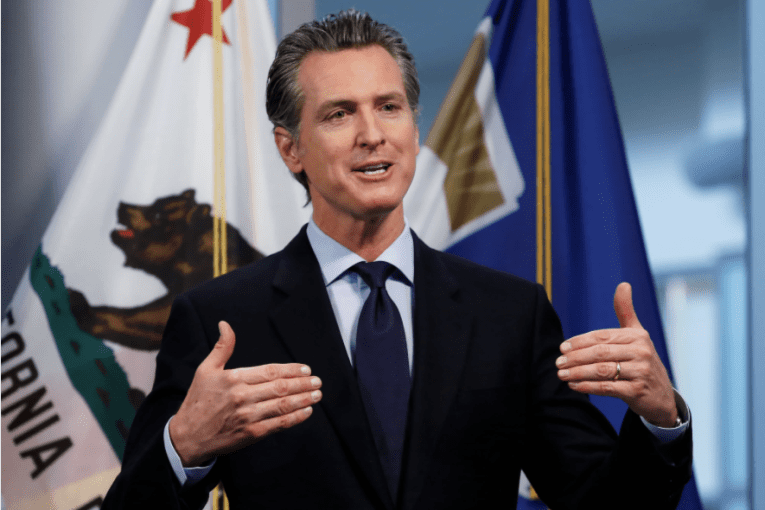
Vanguard News Desk Editor
SACRAMENTO, CA – New laws in California for 2025 don’t appear to feature the legislation in the recent past that sought to address the treatment of people at the hands of law enforcement, but they do range from efforts to crack down on retail theft, limit discrimination in the workplace, and protect consumers.
Senate Bill 1137 is now law, “clarifying that discrimination can happen based on an intersection or combination of protected characteristics…amended the Unruh Civil Rights Act, the Education Code, and the Fair Employment and Housing Act (FEHA) to extend protection against discrimination by including the concept of ‘intersectionality,’” according to ReedSmith Attorneys.
California State Senator Lola Smallwood-Cuevas introduced the measure to make California the first state to “explicitly recognize ‘intersectionality’ in anti-discrimination laws,” said ReedSmith.
Smallwood-Cuevas said, “(D)iscrimination transcends singular dimensions” and SB 1137 “is common-sense reform that addresses the intersectionality of discrimination cases, providing greater protections for Californians, especially those from our most marginalized communities of color.”
ReedSmith added, “While California laws have long prohibited discrimination and harassment based on protected characteristics — such as race, gender, age, disability and sexual orientation — they now also apply to intersectional identities, where two or more of the characteristics result in a unique form of discrimination.”
The governor also signed AB 3089. It formally apologizes for the state’s role in the slave trade, recognizing the harms caused by slavery. Although California banned slavery, thousands of slaves were imported to the state.
“The State of California accepts responsibility for the role we played in promoting, facilitating, and permitting the institution of slavery, as well as its enduring legacy of persistent racial disparities…California is now taking another important step forward in recognizing the grave injustices of the past — and making amends for the harms caused,” Gov. Gavin Newsom said in a statement.
The Attorney General can investigate hospitals that don’t comply with anti-bias training (AB 2319), communities—usually in low income areas known as “food deserts” —will have to be advised before grocery stores and pharmacies close (AB 1089) and employment discrimination protections can now include bias for traits associated with race (AB 1815).
And, according to the legislative digest, the state’s Inspector General can review a list of banned books in prisons (AB 1986).
California’s minimum wage, low-income workers get a 50-cent raise to $16.50 an hour, automatically adjusted for inflation. It applies to all employers, of any size.
The wealthy and powerful, starting in late 2025, won’t be able to get preferential treatment from all colleges and universities, which will be banned from giving that special treatment in admissions of family members of alumni and donors.
The “legacy admissions” have long been banned at California’s public universities but not so at private colleges like Stanford. AB 1780, according to critics like Stanford Law professor Ralph Richard Banks, charge there is “no basis for actually enforcing” the law and that it acts as “a sort of moral shaming of universities” that ignore it, according to a story in the Sacramento Bee.
The Bee also notes that, in 2025, “workers who take paid family leave or disability will get more money: SB 951, authored by Sen. Maria Elena Durazo, D-Los Angeles, in 2022 increases the programs’ wage replacement rates from 60-70% to 70-90% in the new year. Durazo said the hikes will allow more people to take time off to recover or bond with a new baby.
“Another new law, AB 2123 by Assemblymember Diane Papan, D-San Mateo, bans employers from requiring workers to use vacation time before taking paid family leave. Previously, they could require employees to take up to two weeks of earned but unused vacation before the employee could take paid family leave to care for a sick family member or bond with a new child.”
Another new 2025 law requires foster parents show “an ability and willingness” to meet the needs of the children they are seeking to care for, regardless of that child’s sexual orientation, gender identity, or gender expression, before they will be approved to care for the child, writes the Bee.
SB 407 requires California counties to provide caregiver training that supports “children of all races, ethnic group identifications, ancestries, national origins, colors, religions, sexes, sexual orientations, gender identities, mental or physical disabilities, or HIV statuses in foster care,” according to the bill digest.
Another measure bans employers from mandating workers attend “captive audience” meetings that, SB 399 suggests, may have anti-union, religious or political messages. Firms can be fined $500 for “subjecting, or threatening to subject, an employee to discharge, discrimination, retaliation, or any other adverse action.”
Finally, a bevy of new laws claim to crack down on retail theft, including one that allows prosecutors to “aggregate” separate thefts into one case, another that can increase mandatory incarceration, AB 1960, for loss of property totaling $50,000 or more.
Another law, AB 3209, allows people convicted of vandalism, theft or assault of a retail worker to be banned from the store for up to two years, and another measure that allows prosecutors to consolidate theft charges across multiple counties into a single trial.
Finally, in consumer protection laws, bank and credit union fees will be limited or banned under AB 2017 and SB 1017, and medical debt can no longer be used on credit reports when people apply for a loan, to rent, or to buy a car.
